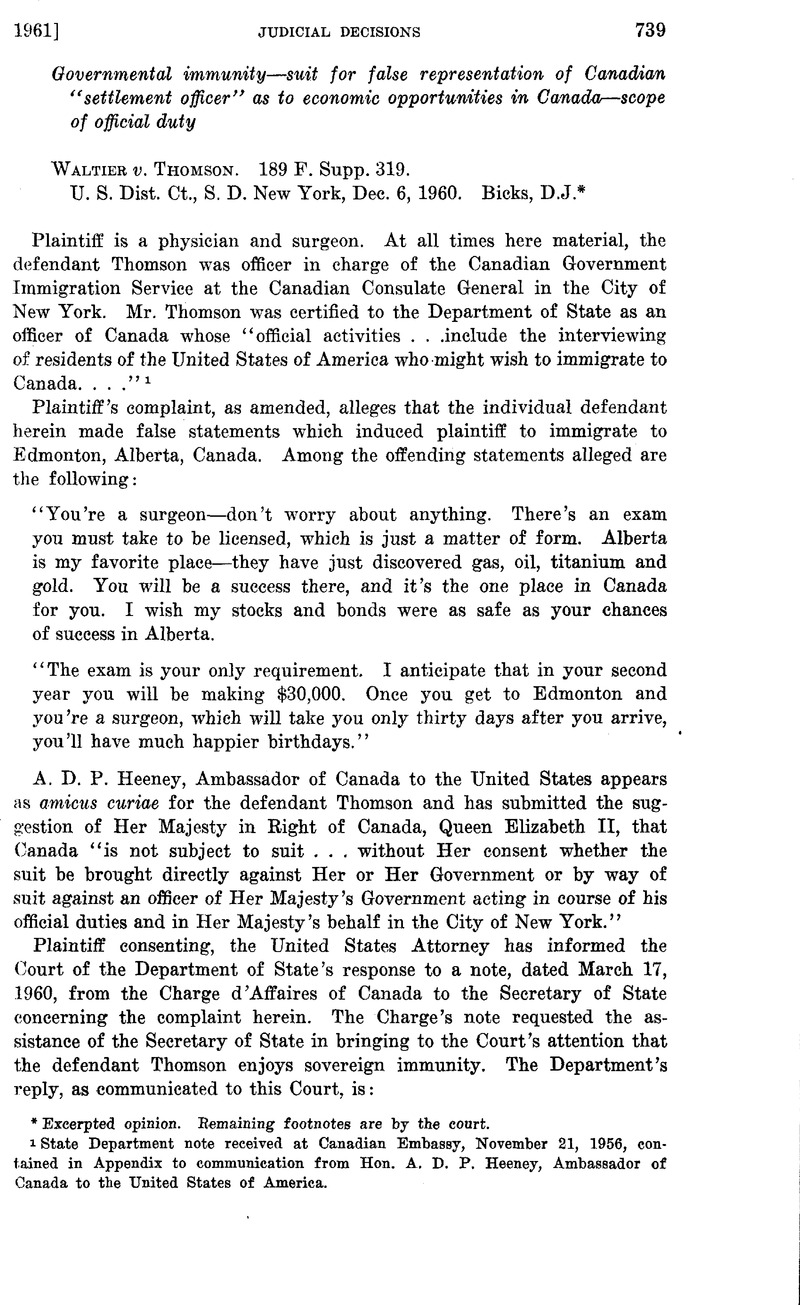No CrossRef data available.
Article contents
Abstract

- Type
- Judicial Decisions
- Information
- Copyright
- Copyright © American Society of International Law 1961
Footnotes
Excerpted opinion. Remaining footnotes are by the court
References
1 State Department note received at Canadian Embassy, November 21, 1956, contained in Appendix to communication from Hon. A. D. P. Heeney, Ambassador of Canada to the United States of America.
2 It is significant to note that the Department of State made no response to the Venezuelan Ambassador’s suggestion as to the status of the defendant in Arcaya v. Paez, supra. Here, as more fully appears in the text of this opinion, the Department has represented defendant’s status to this Court.
3 The suggestion that the making of false statements is not within the defendant Thomson’s official duties, since wrongdoing is never authorized, was laid to rest in Grégoire v. Biddle, 2 Cir., 1949, 177 F.2d 579, 581, where the Court said: “The decisions have, indeed, always imposed as a limitation upon the immunity that the official’s act must have been within the scope of his powers; and it can be argued that official powers, since they exist only for the public good, never cover occasions where the public good is not their aim, and hence that to exercise a power dishonestly is necessarily to overstep its bounds. A moment’s reflection shows, however, that that cannot be the meaning of the limitation without defeating the whole doctrine. What is meant by saying that the officer must be acting within his power cannot be more than that the occasion must be such as would have justified the act, if he had been using his power for any of the purposes on whose account it was vested in him.”
4 Complaint, par. 3.


